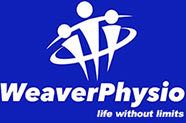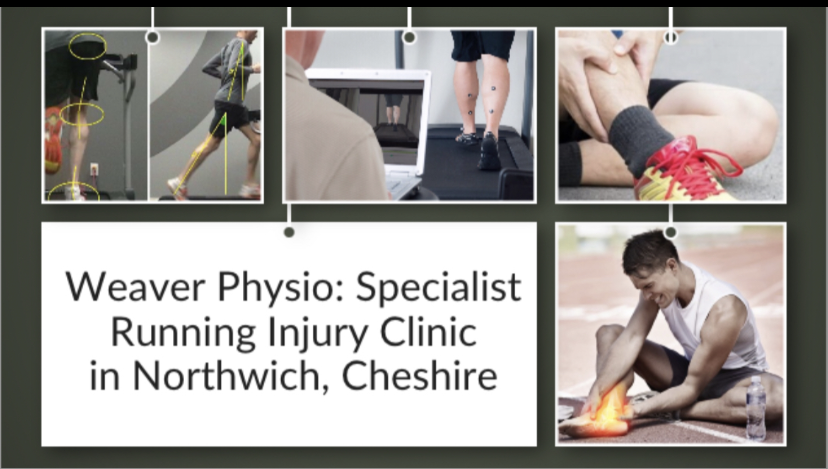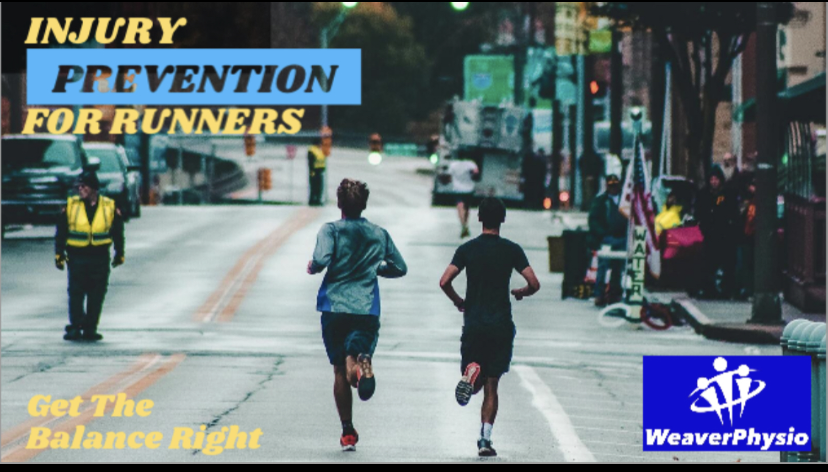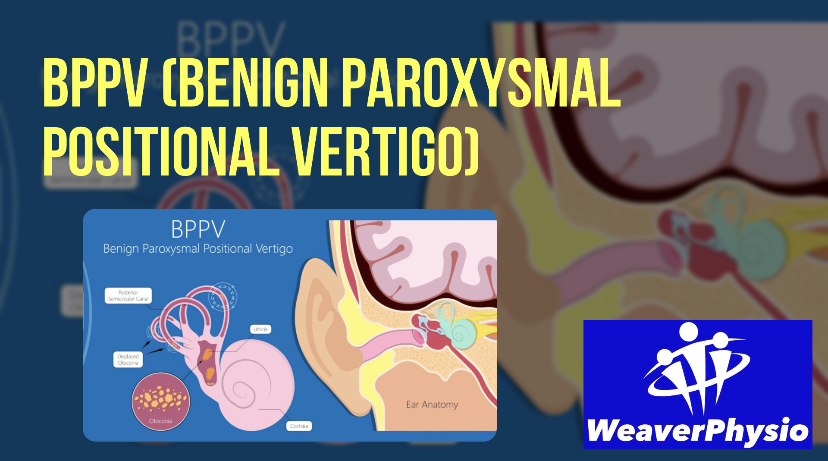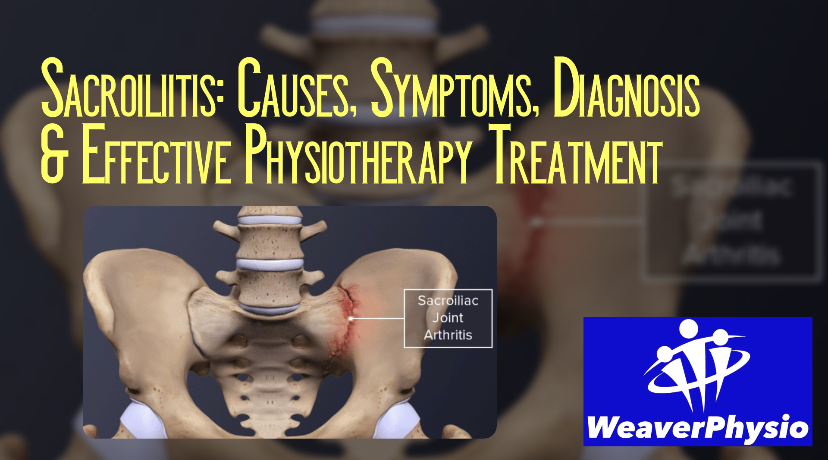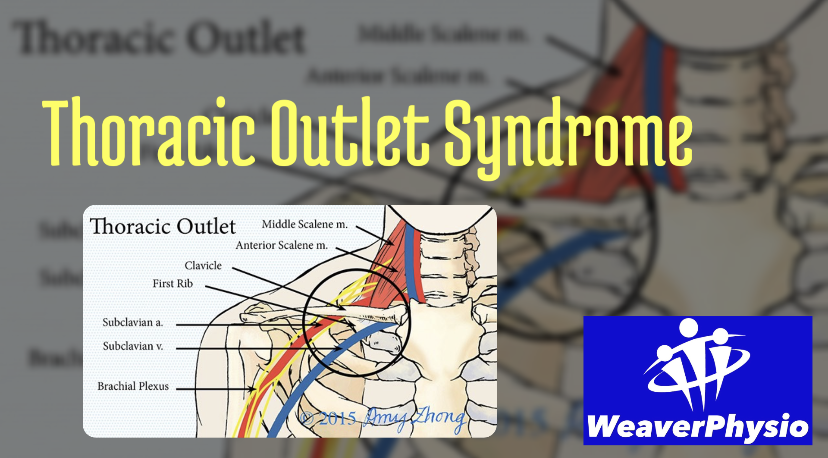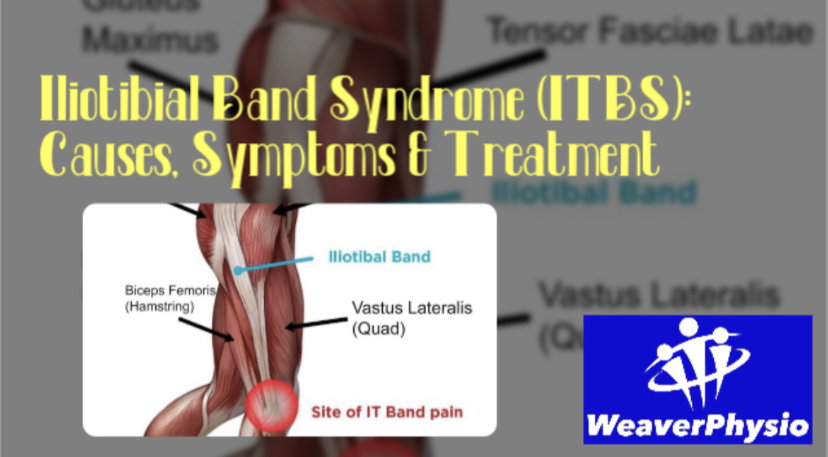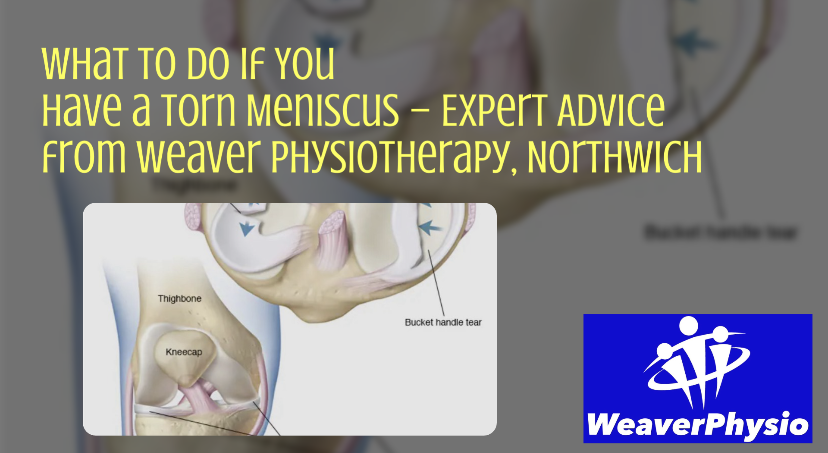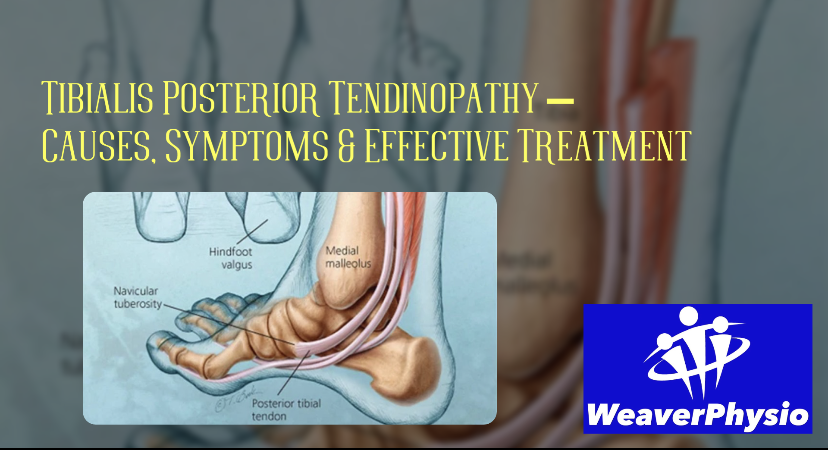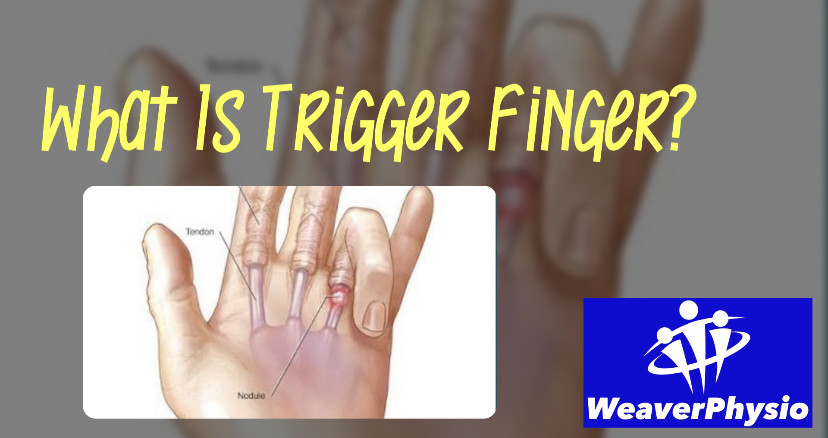The Sports Physiotherapist’s Role in Injury Prevention
How Weaver Physio Keeps Athletes Performing at Their Best
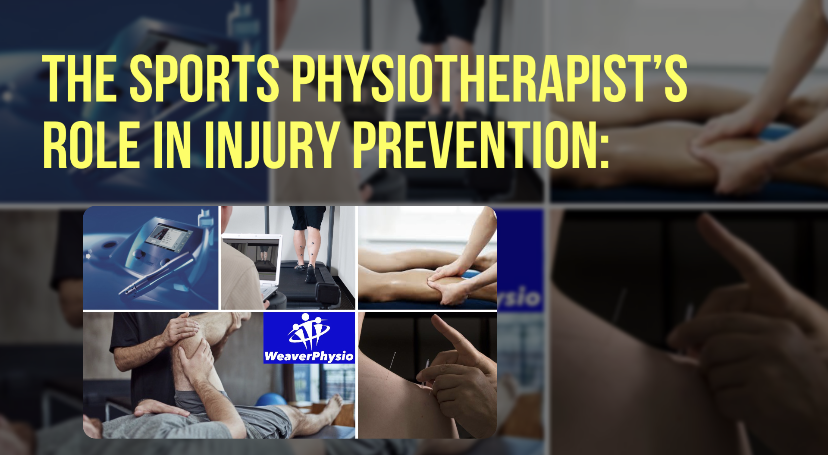
In the world of sport and physical performance, injuries are not just setbacks—they can halt progress, affect mental health, and even end careers. But what if many of these injuries could be prevented altogether?
At Weaver Physiotherapy & Sports Injury Clinic in Northwich, Cheshire, our expert sports physiotherapists specialise not only in treating injuries but also in proactively preventing them. Whether you’re a runner, footballer, swimmer, CrossFit athlete, or weekend warrior, understanding the sports physio’s role in injury prevention can be a game-changer for your performance and longevity in sport.
In this in-depth guide, we explore how sports physiotherapy supports injury prevention, enhances athletic resilience, and helps you train smarter—not just harder.
What Is Sports Physiotherapy?
Sports physiotherapy is a specialised branch of physiotherapy focusing on the assessment, treatment, rehabilitation, and prevention of injuries related to sport and physical activity.
Sports physios understand the unique demands athletes place on their bodies. They use their clinical expertise to optimise performance, prevent overload, and design tailored strategies to keep individuals active and injury-free.
At Weaver Physio, our sports physiotherapists are highly trained in biomechanics, movement analysis, strength and conditioning, and hands-on techniques—providing a full-circle approach to both treatment and injury prevention.
Why Injury Prevention Matters
Injury prevention isn’t just about avoiding pain—it’s about maintaining performance, consistency in training, and reducing long-term health risks.
Key Benefits of Injury Prevention:
• 🚫 Reduces time lost to injury
• 🏃 Maintains training load and progression
• 🧠 Supports athlete confidence and mental well-being
• 💷 Reduces costs associated with treatment and time off
• 🦵 Lowers the risk of chronic overuse conditions
Rather than waiting for an injury to occur, our philosophy at Weaver Physio is simple: be proactive, not reactive.
The Sports Physio’s Key Roles in Injury Prevention
Let’s break down exactly how our sports physiotherapists help prevent injuries in athletes of all levels.
1. Biomechanical and Movement Screening
The foundation of injury prevention lies in understanding how your body moves. Our sports physios carry out comprehensive movement assessments to identify:
• Muscle imbalances
• Poor joint mobility
• Faulty movement patterns
• Asymmetries in strength or control
By spotting these dysfunctions early, we can correct them before they cause strain or breakdown.
🔍 Example: A runner with weak hip stabilisers may compensate at the knee or ankle, leading to issues like IT band syndrome or shin splints. A biomechanical screen would highlight this risk before injury sets in.
2. Gait Analysis and Running Assessments
Running is one of the most injury-prone sports due to repetitive impact. At Weaver Physio, we use video gait analysis and running assessments to:
• Analyse stride length and cadence
• Evaluate foot strike and pelvic control
• Identify inefficiencies or overuse risks
We then design targeted interventions—such as technique cues, strength training, or footwear advice—to reduce injury risk and improve running economy.
🏃 Common Conditions Prevented:
• Achilles tendinopathy
• Runner’s knee (chondromalacia patella)
• Plantar fasciitis
• Shin splints (MTSS)
3. Personalised Strength and Conditioning Programmes
A strong body is a resilient body. One of the most effective injury prevention tools is a tailored strength and conditioning programme.
Your sports physio will:
• Identify weak links in your kinetic chain
• Prescribe specific strength exercises
• Ensure correct loading, volume, and technique
🏋️♀️ Focus Areas:
• Glute and core stability
• Posterior chain strength
• Dynamic control and balance
• Eccentric loading capacity (especially for tendon health)
This is especially crucial during pre-season periods, when training loads increase and injury rates spike.
4. Load Management and Training Advice
Overtraining and poor recovery are among the biggest contributors to injury. Sports physios educate athletes on how to manage their:
• Weekly training loads
• Recovery strategies
• Tapering schedules
• Return-to-play protocols
📉 Load errors are often behind stress fractures, tendinopathies, and muscle strains—especially in runners and field athletes.
5. Manual Therapy and Recovery Techniques
Hands-on physiotherapy doesn’t just treat injury—it helps prevent it. Techniques such as:
• Sports massage
• Trigger point therapy
• Myofascial release
• Joint mobilisations
These are used to reduce muscle tightness, improve joint mobility, and prepare the body for training or competition.
💆 Why recovery matters:
Athletes who prioritise recovery are less likely to suffer overuse injuries, burnout, and fatigue-related breakdowns.
6. Injury-Specific Prehabilitation
Prehabilitation (“prehab”) is a proactive rehab programme designed to strengthen vulnerable areas before an injury occurs. Your physio will use sport-specific evidence to create these programmes.
🎯 Examples:
• Rotator cuff prehab for swimmers and overhead athletes
• Hamstring strengthening for footballers
• Ankle proprioception drills for trail runners or court athletes
Prehab is especially important following previous injury, surgery, or periods of inactivity.
7. Education and Empowerment
At Weaver Physio, education is a key part of our approach. We help athletes understand:
• Injury warning signs
• How to listen to their body
• Recovery principles (nutrition, sleep, hydration)
• Smart warm-up and cooldown routines
The more athletes understand their bodies, the better decisions they make—and the fewer injuries they suffer.
🧠 Knowledge = Injury prevention
Who Can Benefit From Injury Prevention Physiotherapy?
Injury prevention isn’t just for elite athletes—it’s for anyone who trains regularly, wants to stay active, or has had previous injuries.
We work with:
• Runners of all levels
• Gym-goers and lifters
• Football, rugby, and netball players
• Triathletes, swimmers, cyclists
• Dancers and performing artists
• Youth athletes in development programmes
Case Study: From Injury-Prone to Bulletproof
Meet Sarah, a 42-year-old recreational runner
Sarah came to Weaver Physio after battling recurring Achilles tendinopathy that flared up every time she increased her mileage. Through our injury prevention approach, we:
1. Performed a full movement screen and gait analysis
2. Identified poor ankle control and weak glutes
3. Designed a 12-week strength plan focusing on eccentric calf work
4. Modified her training to reduce acute load spikes
5. Introduced soft tissue work and recovery guidance
🎉 Outcome: Sarah hasn’t missed a run in over 18 months. She’s now training for her first marathon—injury-free.
The Weaver Physio Difference
What makes Weaver Physiotherapy & Sports Injury Clinic Northwich’s trusted destination for injury prevention?
✅ Specialist Sports Physios with years of experience in elite and grassroots sport
✅ Evidence-based assessments and programming
✅ State-of-the-art facilities, including running analysis and rehab equipment
✅ Personalised, athlete-centred care
✅ Support from injury to performance and everything in between
✅ Over 70 years combined experience in treating both musculoskeletal and sporting injuries
Our team believes every athlete deserves to train confidently without fear of injury—and we’re here to make that happen.
How to Get Started
Ready to future-proof your body and performance?
Book a Sports Injury Prevention Assessment with Weaver Physio. We’ll guide you through a complete screening process, movement analysis, and create a tailored plan to:
• Prevent injuries
• Improve performance
• Optimise recovery
• Build strength and confidence
Final Thoughts: Don’t Wait for Injury
Waiting until you’re injured to see a physiotherapist is like waiting until your car breaks down to service it. Proactive injury prevention is the key to consistent performance, better results, and a healthier body.
At Weaver Physiotherapy in Northwich, we’re proud to be more than just injury fixers—we’re injury preventers, performance enhancers, and trusted partners in your athletic journey.
